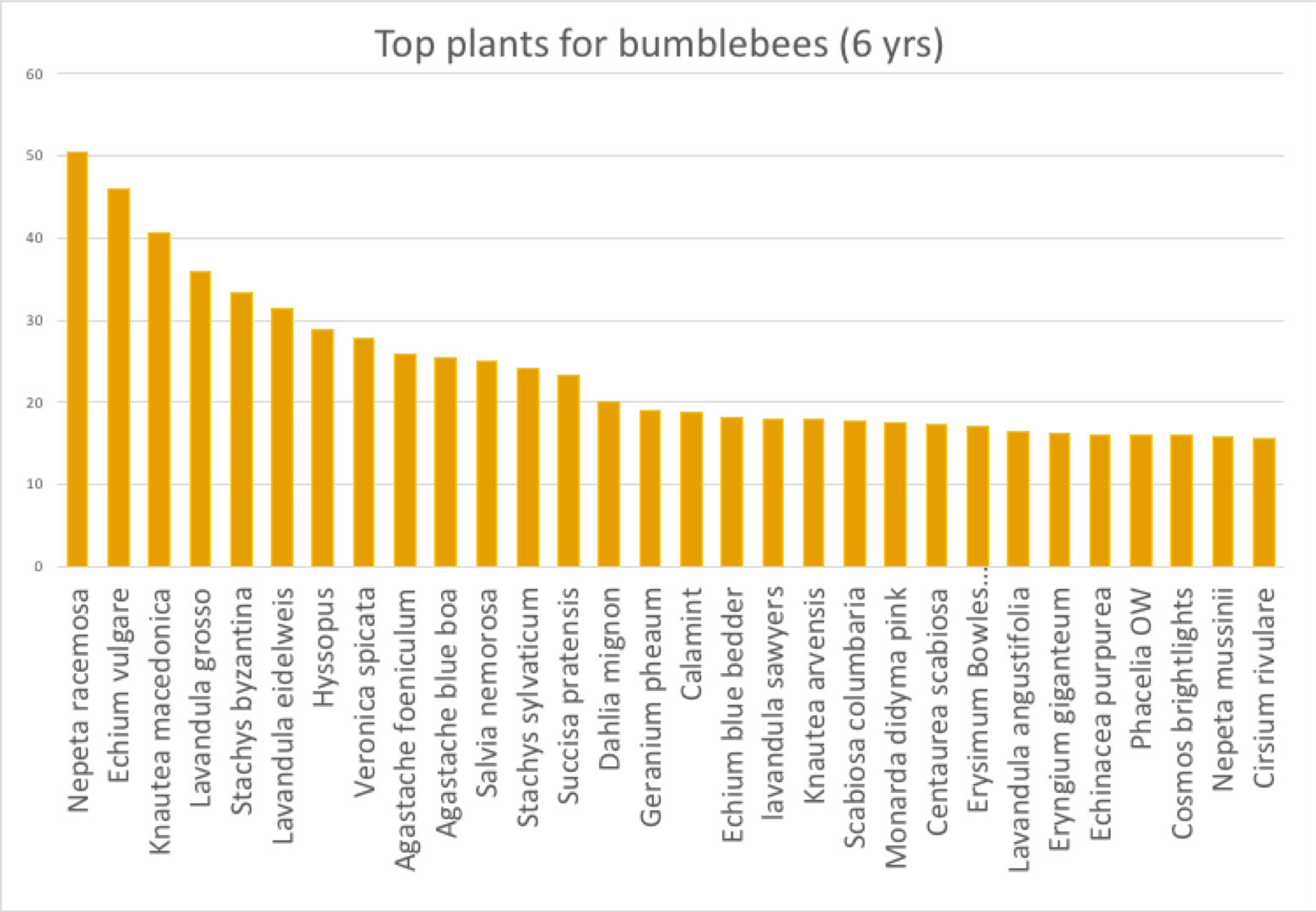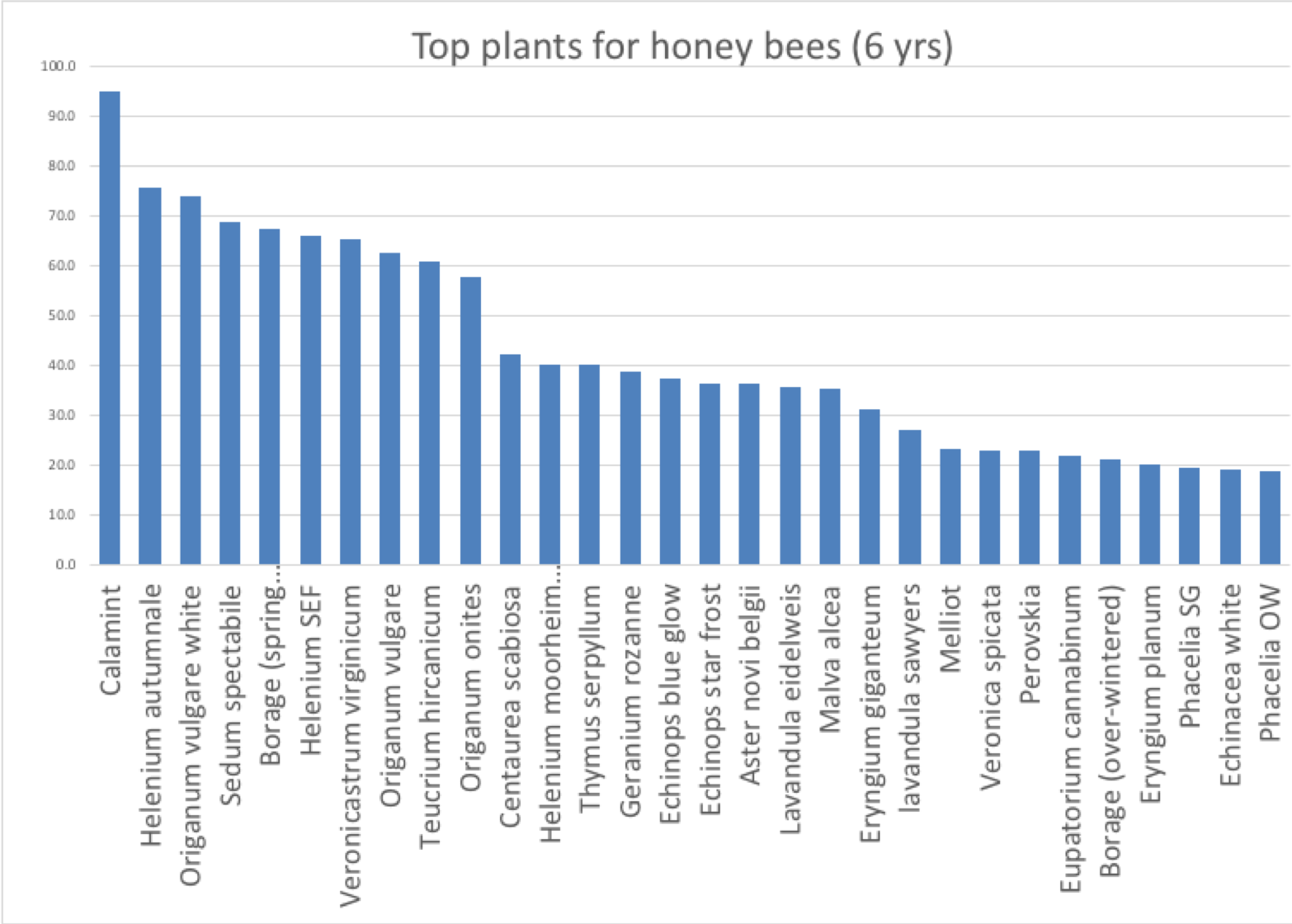Plants for bees: a 6-year study
The following information along with a link to a more detailed report may be of interest to many of you wanting to help bees by having the flowers they will actually use. I hope you find it useful. From rosybee plants for bees
Summary of findings
The following findings are based on 8 years of hunting for the best plants and 6 years for quantification analysis. Each year has added to my understanding of the subject but most of the findings have stayed very consistent from the first year. A report of our findings from the first 5 years and our data for all 117 plants tested can be found on the right of this page.
· The primary finding is that the number of bees each plant attracts varies hugely. Some attract surprisingly few, even supposedly ‘bee-friendly’ plants. This variation is significant for anyone wanting to maximize the amount of bee-food any area of land can provide.
· Weather has a major impact on both bees and plants causing them to thrive much more in some years than others. Yet, both are also very resilient and how attractive a plant is to bees should not be judged on a single year let alone a single observation.
· Both native and non-native plants are equally attractive to bees. Except where there is some unique inter-dependency, most bees show no favouritism to native plants and seek food where they can access it.
· Healthy plants with more flowers attract more bees. The old gardeners’ adage of ‘right plant for the right place’ is important for both a sustainable garden and more bee-food
· Different plants attract different bees and so to ensure that food is supplied to a wide range of bees its best to have a wide range of flowers available. Although plant structure has a bearing on which plants each bee prefers, it is not the only factor.
The chart below provides a summary of the cumulative results for the 5 years of data showing which plants attract the most bees and of which kind. The values have been rationalised to adjust for the dominance of honey bees in the sample. We also show the same data separately for solitary bees, bumblebees and honeybees.
Click here for the full report
For those of you who like a more scientific paper by Rosi Rollings and Prof Dave Goulson
Published with kind permission from Rosi Rollings of Rosybee who ‘wants to help everyone make a difference to the future of UK pollinating insects’
Our environmental credentials
We don’t make any big claims about being organic because it is fundamental to our ethos; there is not much point in trying to help one bit of the environment and damaging another in the process. This is all the things we do to try and make a difference:
- only use peat-free compost
- use organic, seaweed-based plant food
- capture rainwater from the polytunnel roof to provide 90% of our water needs
- minimise the use of fuel by only providing heat when it is freezing outside or for specific young plants
- no bug-spray but we do occasionally use a minor amount of anti-fungal





Thank you for this fascinating article. I am coming at this completely fresh so this will be a really useful guide for setting out our garden. I will have to take some time looking up the common names too…
My pleasure Hannah! Cheers George
One plant I would like to pick your brains on, is the Escallonia. I believe you can get these in 3 different colours. How bee friendly is the Escallonia. I was thinking of planting a long hedge and using different colours of Escallonia?
Google it Duncan, I have no idea re Escallonia. Cheers George
Ok. I will google it
Great! Cheers George
A brilliant article! Thank you ever so much for sharing!
One plant that I was surprised not to see on this list is common comfrey (Symphytum officinale)
I highly recommend it as the bees (particularly bumblebees) can’t get enough of it in my garden and where I’ve found it growing wild.
A word of warning though, it can be a little bit thuggish and rather persistent as any fragment of root left in the soil will become a new plant, so if like myself, you’re limited on space, try keeping it in a pot…
The bees will love you for it!
Yes, I am aware of comfreys benefits to bees. The article was written by a plant nursery so it could be the plants that they sell? Cheers George